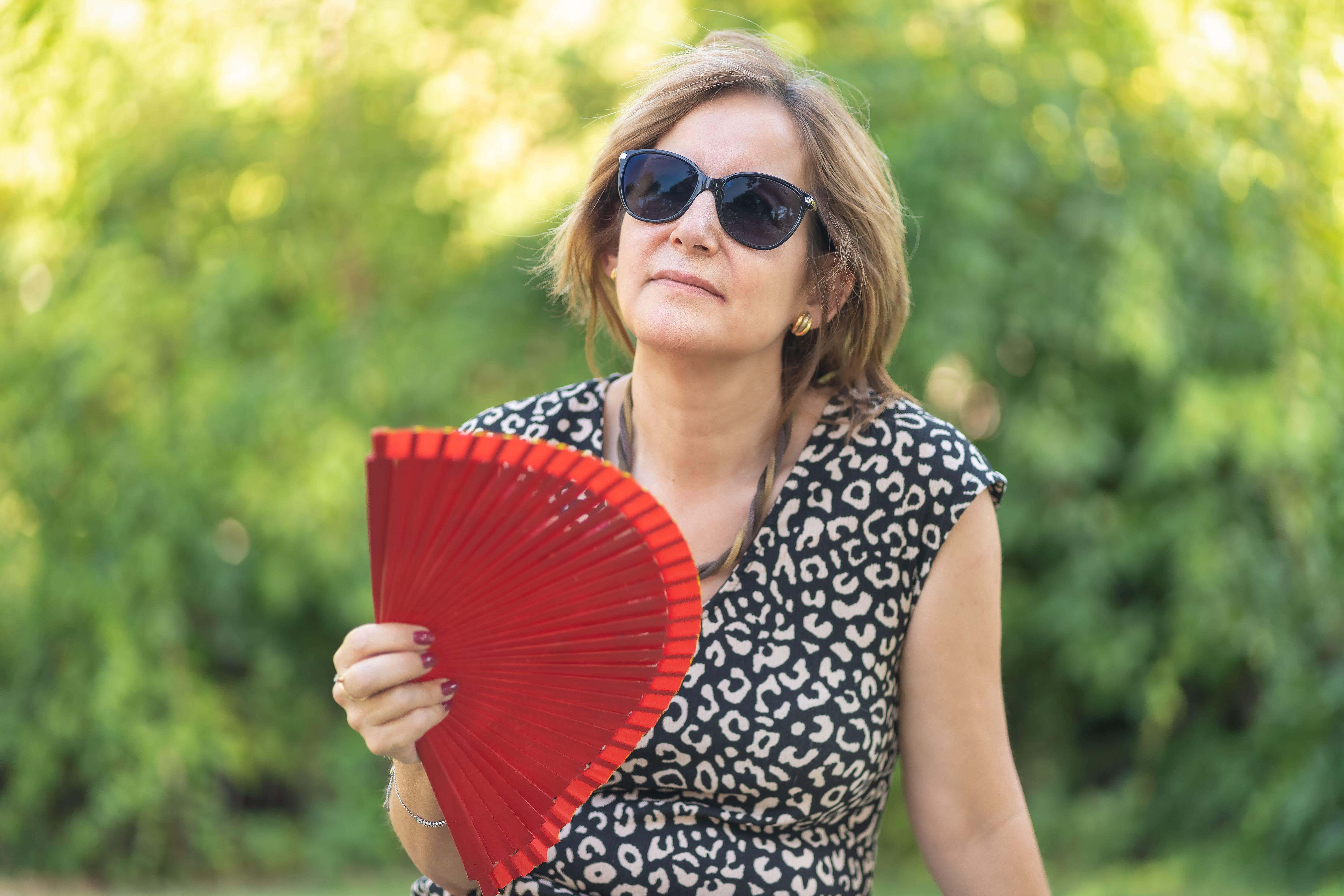Struggling with menopause symptoms in the heat? An expert shares tips
From night sweats to dealing with stuffy trains, Dr Naomi Potter offers some advice. By Abi Jackson.

Heatwaves can be uncomfortable at the best of times, but what if you’re already having hot flushes?
Dr Naomi Potter, founder of Menopause Care and co-author of bestselling book, Menopausing, with Davina McCall, points out that eight in 10 people who go through menopause experience symptoms like hot flushes – a sudden surge of heat, often accompanied by redness and sweating.
Night sweats and trouble sleeping are also common during perimenopause and menopause – not the sort of things you want to be dealing with when a heatwave hits.
“The increasing temperatures can make hot flushes and night sweats worse, and make it harder to cool down when you do experience them,” says Potter, explaining that the lack of oestrogen associated with menopause affects the part of the brain that helps regulate body temperature.
“If you’re already hot and sweaty, then having a night sweat or hot flush can just make everything worse and uncomfortable.”
Here’s her advice for getting through the summer heatwaves…
Travelling
“Public transport can be awful at the best of times in the heat, especially when travelling on tubes, trains and buses where you’re cramped in, so if you experience a hot flush while travelling, it can be extremely unpleasant,” Potter says. “Try carrying water and a small fan, to give some comfort in these moments, if just for a short relief.”
If you can, invest in a water bottle designed to keep liquids cold, so you’ll always have something cool to sip when you need to.
Be drink savvy
Speaking of drinks, Potter also suggests trying to limit alcohol, coffee and sugary beverages, especially if menopause symptoms are proving troublesome. Iced tea and water are ideal options.
“During the summer, you’re more likely to be dehydrated, and alcohol, coffee and fizzy drinks worsen dehydration,” she explains. “So it’s worth bearing that in mind and staying hydrated with water.”
Sleep
Menopause might already be impacting your mood and energy levels, so sleepless nights can be a double whammy. “In the case of night sweats, you’ll often experience broken and interrupted sleep, which has a knock-on effect and impact on lifestyle and work the next day,” says Potter.
“Create a cool sleeping environment by wearing light breathable bed clothes and have a spare by the bed in case you wake up sweaty, so you can change without having to properly wake up to find new clothes,” she suggests. Plus, a well-positioned bedroom fan will be your summer best friend.
Dress light
It goes without saying that clothing also affects temperature – so if hot flushes are bothering you, tweaking your wardrobe could certainly help. Potter suggests dressing in “lightweight, breathable fabrics” such as cotton or linen. Plus, a light pair of cycling shorts/long knickers under skirts and dresses can help massively with sweating and discomfort at this time of year.
Get the right support
Heatwave or no heatwave, menopause doesn’t have to mean suffering in silence and just soldiering on if symptoms are impacting you.
“If somebody is having symptoms, then it is definitely worth seeing their GP because there’s lots that can be done,” says Potter. “And if you have a menopause-friendly workplace, it is definitely worth talking to [managers] because with recently headlines, many workplaces are much more supportive of the menopause.
“I think it’s vital that conversations like this continue,” Potter adds. “Without speaking about experiences, then there is no way for people to realise that this is a normal life event, and there is help if it is required.”
Storing HRT in the heat
Finally, if you are taking hormone-replacement therapy (HRT), make sure it’s being stored correctly when temperatures soar.
“Most HRT should be stored at room temperature. If this is the case with yours (it will say on the side of the packaging), do not refrigerate or freeze it. Instead, storing it in a cool dark place, away from direct light, should be fine,” says Potter.
You will want to keep it away from excessive temperatures though – basically anywhere that can get particularly hot when it’s sunny, such as inside cars, on window ledges. “And aircraft holds,” Potter adds, “where temperatures are unknown and can rise rapidly.”
Bookmark popover
Removed from bookmarks